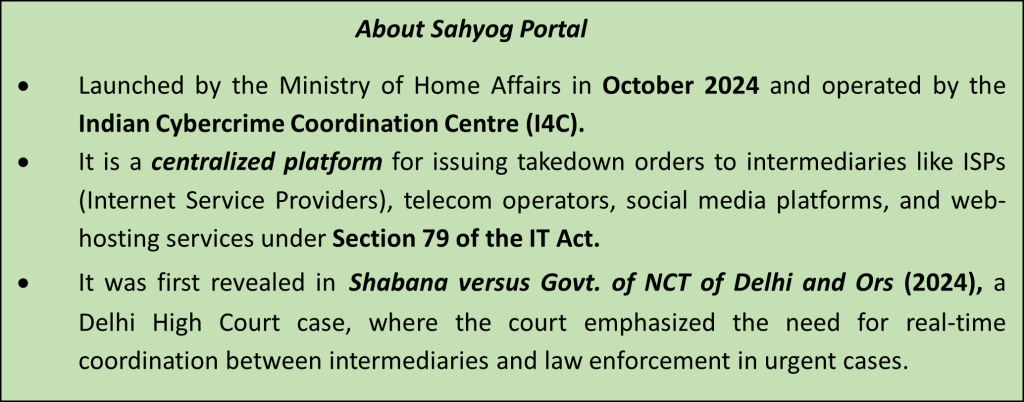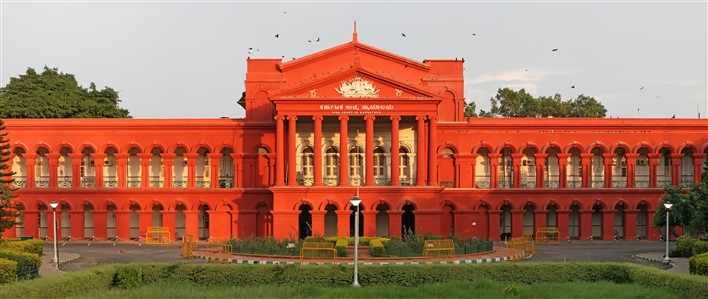Context:The Karnataka High Court has rejected X Corp’s petition challenging the Union government’s Sahyog portal, which facilitates content takedown under Section 79(3)(b) of the Information Technology (IT) Act, 2000.
- While delivering the verdict, Justice M. Nagaprasanna stated that social media “cannot exist in a state of anarchic freedom”.
- He emphasized that India’s digital space is not a “mere playground for the unrestricted dissemination of information in violation of legal statutes.”

Karnataka High Court ruling
- Justice Nagaprasanna described Sahyog as an “instrument of public good” and “beacon of cooperation between citizen and intermediary” also vital for protecting women’s dignity.
- The court ruled that Article 19 rights apply only to Indian citizens, and since X is a foreign company, it cannot claim these protections.
- It also upheld the validity of Sahyog and Section 79(3)(b) of the IT Act, stating that the 2021 IT Rules require a fresh legal interpretation, distinct from the outdated 2011 rules considered in the Shreya Singhal case.
- Shreya Singhal case: The court struck down Section 66A of the IT Act, 2000 ruling that it violates freedom of speech and personal liberty.
Why Did X Challenge the Sahyog Portal in Court?
- In March 2025, Elon Musk-owned X filed a writ petition in the Karnataka High Court, questioning the legality of the Sahyog portal, which it labelled a “censorship portal.”
- The company argued that the government was invoking Section 79(3)(b) of the IT Act to sidestep the stricter and more transparent procedure under Section 69A thus creating a “parallel” and “unlawful” censorship mechanism that lacked constitutional protections.
Government’s Justification for the Sahyog Portal
- The Union government defended the Sahyog portal as a necessary regulatory tool, citing the internet’s rapid, algorithm-driven content spread that demands stricter oversight than traditional media.
- Rejecting claims of creating a parallel censorship regime, the government clarified that Sections 79 and 69A function independently. The portal is merely an administrative mechanism designed to enable swift action against illegal content online.
- The government also challenged X Corp’s locus standi, noting that as a foreign company, it cannot claim fundamental rights under Article 19, which protects freedom of speech and expression exclusively for Indian citizens.
- Additionally, the government highlighted that X remains the only major intermediary yet to integrate with Sahyog.
Difference between Section 66(A), 69 and 79 of IT Act 2000


